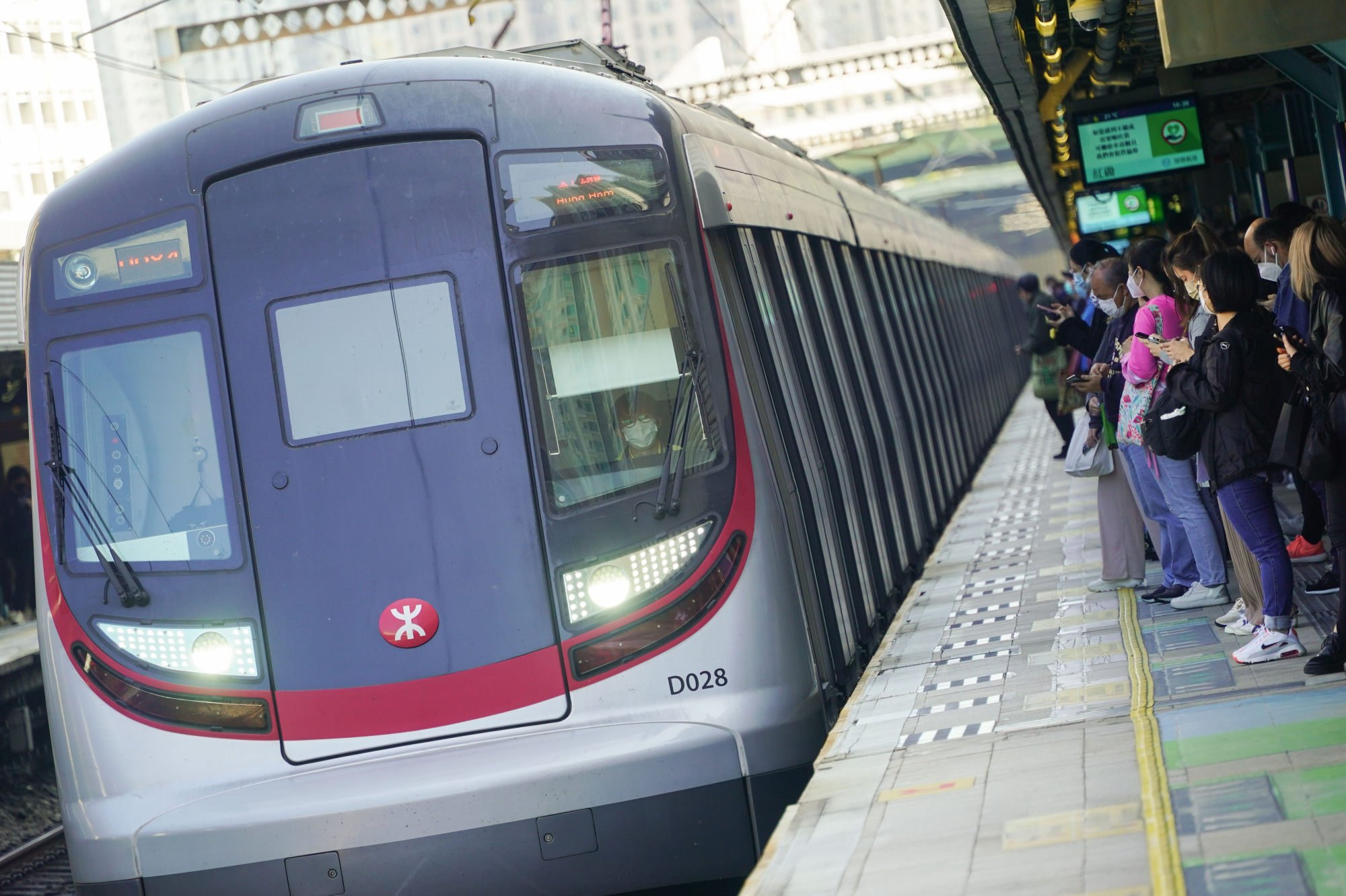
MTR Corp posts HK$9.55 billion profit for last year, but warns tough times ahead as Covid-19 cuts into patronage
- CEO Jacob Kam says fifth wave of pandemic has brought uncertainty to company’s outlook
- Recovery comes after posting deficit of HK$4.8 billion in 2020, its first loss ever
But the rail giant warned on Thursday that the now-raging fifth wave of the pandemic posed unprecedented challenges to its operations, with more than 2,900 employees infected and service reduced due to a dramatic drop in ridership.
CEO Jacob Kam Chak-pui conceded that the health crisis had left the MTR Corp faced with an uncertain outlook.
“Over the past two years or so, the corporation, as well as Hong Kong and all the other cities we serve, have been facing unprecedented challenges,” he said. “Our recurrent revenues, including railway business as well as the station and mall businesses, have undergone an unprecedented adverse impact and the outlook for the next few months is somewhat uncertain.”

In 2020, the MTR Corp lost money for the first time since its listing two decades ago, posting a deficit of HK$4.8 billion as it reeled from the effects of the 2019 social unrest and the economic ravages of Covid-19.
Last year, passenger numbers on MTR rail services improved in step with the easing of the pandemic and restrictions on businesses. Ridership in 2021 rose 24 per cent year on year to 1.42 billion, with the firm’s transport operations posting a loss of HK$4.2 billion, compared with a loss of HK$5.4 billion in 2020.
On the back of the gradual economic recovery the city experienced last year, recurrent business profit was HK$1.8 billion last year, compared with a loss of HK$1.12 billion in 2020.
Hong Kong’s MTR Corp to reduce frequency of some services from Friday
In a bid to contain the virus, all cross-border railway services have been suspended since January 30, 2020, and all but three of Hong Kong’s border checkpoints have been closed indefinitely.
As a result, the MTR Corp’s cross-border services – including high-speed rail, intercity lines and its busy Lo Wu and Lok Ma Chau routes – ground to a halt.
The company further reduced service on its eight rail lines and temporarily closed down some customer service centres last week to cope with the thousands of employees who had contracted the coronavirus and the many others who were quarantined as close contacts.
Patronage has also been hard hit by the skyrocketing growth in Covid-19 infections, with ridership dropping 40 per cent during peak hours in February compared with December. Ridership for weekday evenings and weekends plunged by about 60 per cent from December’s level.
In the face of a massive number of staff infections, Kam admitted that in an extraordinary situation, the rail firm might be forced to further adjust service or close some affected stations, but stressed the company was dedicated to keeping trains running.
“Our primary objective is to maintain our service as much as we possibly can,” he said. “We have deployed all the available resources that we have, including asking some of our retired staff to come back to help … Some employees have also recovered.”
Coronavirus: Hong Kong’s public transport hit by 40 per cent drop in passengers
Kam indicated the company did not have room to further reduce fares, noting transport operations posted a loss of more than HK$4.2 billion and stable finances would need to be maintained for investment in new infrastructure projects and facilities.
The existing June or July target of opening the cross-harbour section of the HK$97.1-billion Sha Tin to Central link remained unchanged, he added.
Quentin Cheng Hin-kei, spokesman of commuter concern group Public Transport Research Team, said the MTR Corp faced a gloomy outlook in the first half of this year due to the drop in ridership, rental concessions granted to tenants and possible partial lockdown of the city for mass testing.
“It’s highly likely that the rail operator will be in the red again in the first half of this year as Hong Kong’s economy is on its last leg amid stringent business curbs,” he said. “As to whether the MTR Corp is able to make a rebound in the second half of this year, it will very much depend on the pandemic situation and whether the business curbs will be relaxed.”

